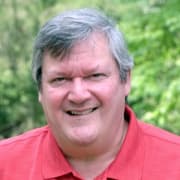Walk-up music gives PGA Tour a new beat

Although the Zurich Classic of New Orleans is a fine golf tournament held in a wonderful city, it probably is best that I won’t be at TPC Louisiana this weekend. There will be music playing on the first tee – walk-up songs of the two-man teams’ choosing for the last two rounds – and the odds of my being exposed as tragically out of touch with the current charts might match those of someone being overserved in a given night on Bourbon Street. I would need the tandem of Jerry Kelly and Steve Stricker to make the cut and hope my fellow fiftysomethings pick something that also has some age on it.
The youngsters don’t figure to select a song that Sam Snead had in his head (the 1860s waltz “The Blue Danube”) or Jack Fleck had on his record player the week he beat Ben Hogan at the U.S. Open (Mario Lanza’s “I’ll Walk With God”). Nor will they go with a number popular when Byron Nelson partnered with Jug McSpaden in the 1945 Miami International Four-Ball that started his record streak of 11 consecutive victories (“Ac-Cent-Tchu-Ate the Positive”). Don’t expect to hear “Reach Out I’ll Be There,” either, which was getting a lot of radio time when Jack Nicklaus and Arnold Palmer joined forces to win the 1966 PGA Team Championship.
Walk-up music is primarily a baseball thing that dates to 1970, when a new organist at Chicago White Sox games, Nancy Faust, was encouraged by the team’s management to play the state songs of Sox players when they came to the plate. Faust got more creative in her decades of entertaining White Sox fans, and the practice became widespread across professional baseball.
The sounds on the course in the Crescent City won’t be the first in golf. Matches during the past couple of years in the LPGA’s team events – the Solheim Cup and International Crown – have begun after loud, musical introductions. Spectators singing songs long have been a Ryder Cup staple. The European Tour has experimented with music on practice ranges and first tees as well in an attempt to emphasize the entertainment aspect of its enterprise. CEO Keith Pelley told the Associated Press last year that there were no negatives to the novelty, “as long as you are always conscious of the integrity and protection of the game’s magic.”
A sports administrator charged with trying to put fannies in the seats and sponsors’ names on the dotted line is going to define the appealing essence of golf differently than someone who cares about a solitary walk with a Sunday bag. I’m not sure walk-up music was on the short list of what professional golf needed to become more popular or accessible. But I’ll take some lively music over loutish, alcohol-fueled fans shouting inanities or insults who, while thankfully a minority, seem to grow in number each year.
In any case, when the walk-up songs are played at the Zurich Classic, it will be the most attention music will have received on the PGA Tour since the summer of 1982, when Richard Zokol began listening to soft rock on a Walkman between shots at the Greater Milwaukee Open. It had been a lean rookie year for the Canadian up to that point – only three paychecks for a total of $2,743.25 – but the music calmed Zokol and he led through 54 holes, eventually tying for fifth and nearly quadrupling his season earnings.
A Walkman was Zokol’s 15th club for about a year, before he decided to abandon the headphones and control his thinking in a different way. A decision in 2012 made it a breach of Rule 14-3 to listen to music or a broadcast “while making a stroke or for a prolonged period …”
At the Zurich, there will be no soothing between shots, just getting fired up before the first one. The young fellows could do a lot worse than “Bon Ton Roulet” by the late Louisiana zydeco great Clifton Chenier. Their tempo might be faster, but their mood will be better.
Bill Fields has covered golf since the mid-1980s, with much of his career spent at Golf World magazine as a writer and editor. A native North Carolinian, he lives in Fairfield, Conn. Email: williamhfields@gmail.com; Twitter: @BillFields1
